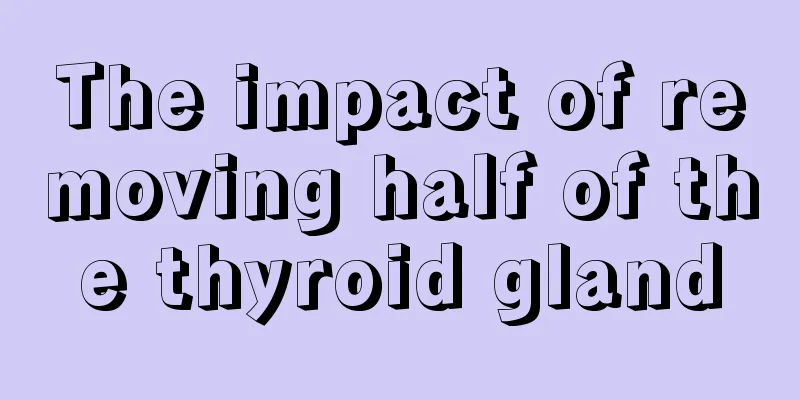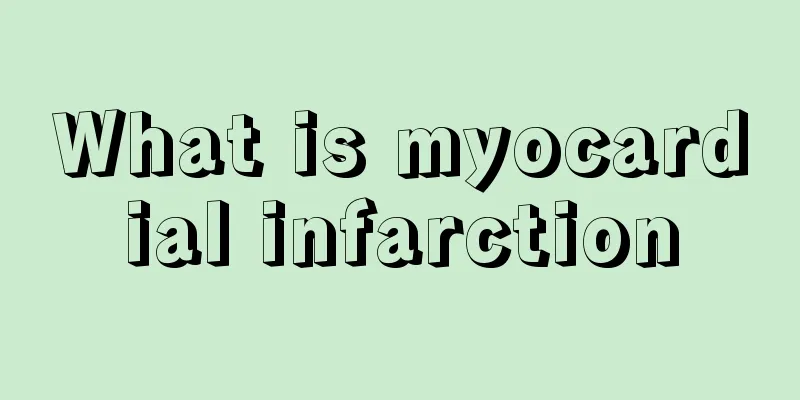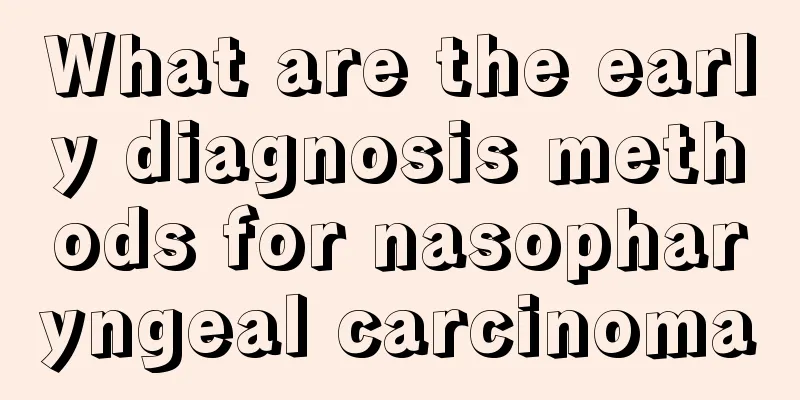The impact of removing half of the thyroid gland

|
If you have a serious thyroid nodule, your doctor will recommend surgery. In surgical treatment of thyroid nodules, a certain amount of the thyroid gland will be removed depending on the patient's condition. So, what would happen if half of our thyroid gland was removed? In fact, for some people, it will not have much impact. Thyroid nodules are a type of thyroid disease and a common disease among surgical diseases. The incidence rate is very high. About four percent of adults will develop thyroid nodules. Thyroid nodules are extremely harmful to the human body, so we must pay enough attention to the prevention and treatment of thyroid nodules. Surgery is a method of treating thyroid nodules. The principle is to remove most of the thyroid gland, and the cure rate is relatively high. But there are big risks. Because the deep part of the thyroid gland contains four very small parathyroid glands that regulate calcium and phosphorus metabolism, if the surgical experience is not sufficient and the parathyroid glands are accidentally removed, it will cause lifelong hand and foot cramps. It may also damage the recurrent laryngeal nerve next to the thyroid gland, which will cause the patient's hoarseness. Although this situation rarely occurs, patients must be mentally prepared. Numbness in the hands and feet may occur after thyroid nodule surgery. This is mainly because certain blood vessels must be cut off during thyroid nodule surgery, which affects the blood supply to the parathyroid glands. After thyroid surgery, there may be a pulling sensation or even coughing when swallowing, which is related to the normal scar contraction reaction after thyroid nodule surgery. This wound, like the incision on the neck, needs to go through a normal scar reaction before it can heal. The scar reaction process will cause contraction and pull the trachea near the wound, causing a pulling sensation when swallowing, and may even irritate the trachea and cause coughing. Generally, partial removal of the thyroid gland does not cause hypothyroidism. The hormones secreted by the remaining thyroid gland are sufficient to meet human physiological needs. For patients who undergo subtotal thyroidectomy, if too much glandular tissue is removed due to disease, it may lead to insufficient hormone secretion by the thyroid gland. Symptoms of hypothyroidism appear. At this time, it can be compensated by supplementing thyroid hormone. The characteristic manifestations of thyroid hormone deficiency in the human body are inability to tolerate cold and fatigue. Common clinical symptoms: fatigue, fear of cold, loss of appetite, overweight, dull facial expression, slow reaction, constipation, chest tightness, and shortness of breath. Female amenorrhea, infertility, male impotence. Skin: Dry, rough, thickened, orange-yellow (especially on the palms), recurring infections. Depression, slow speech, droopy and swollen eyes, dry and thin hair, especially the outer part of the eyebrows falling off, low heart sounds, arrhythmia, heart failure or pericardial effusion, etc. This is just my personal opinion, for reference only, I hope it helps. |
<<: Thyroid nodule surgery recovery period
>>: Tips to make your hands slender
Recommend
What should I do if I can’t fall asleep during my lunch break?
People feel sleepy in spring and tired in autumn....
How to use hyaluronic acid gel
Girls all know about skin care products such as h...
What are the common symptoms of skin diseases
Skin disease is a relatively general term, referr...
How to treat intestinal cancer caused by enteritis
Colorectal cancer is a common malignant tumor in ...
What are the causes of hepatic ascites?
Many people don't know much about ascites. It...
Is microwave food harmful or beneficial to the body?
With the development of the times and the progres...
Tips to relieve anal pain
Anal pain is a very common disease in daily life....
What are the famous snacks in the country
Food is the most important thing for people. Peop...
Can breast cancer patients eat konjac?
Can breast cancer patients eat konjac? 1. Breast ...
How to prevent and treat recurrence of lymphoma after surgery
Lymphoma is a malignant tumor that occurs in the ...
What to do if you feel sleepy all day after radiotherapy for nasopharyngeal cancer
What should I do if I feel sleepy all day after r...
What are the tips for repairing a zipper?
Many items we use in daily life are inseparable f...
What to do if the child won't listen to any teaching?
Sometimes when parents are educating their childr...
Which hospital is good for treating glioma
Which hospital is good for glioma? The choice of ...
What is the reason for the inability to defecate
Inability to defecate is a symptom of constipatio...









